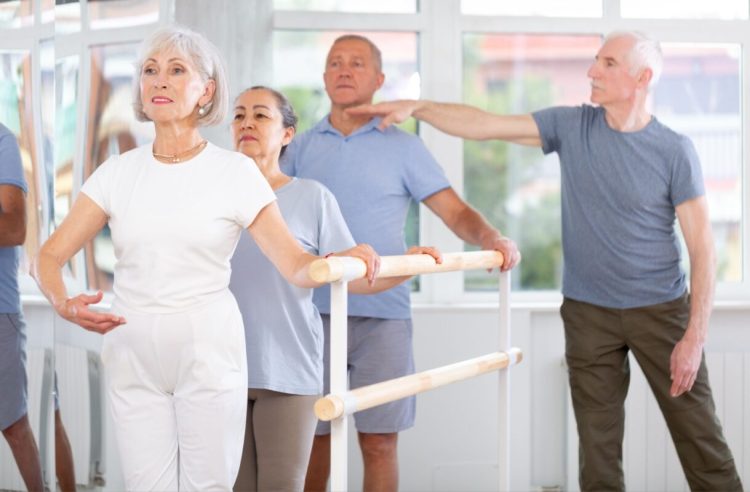Introduction: The Body as a Living Archive of Emotion
Our bodies often reveal more than our words. Posture and body language serve as silent narrators of our emotional histories, trauma, and psychological states. The idea that the body holds memories—sometimes called “psychosomatic holding”—is gaining increasing attention across psychology, somatic therapy, and holistic health fields. This article explores how our posture can reflect unresolved emotional experiences, the science behind psychosomatic patterns, and ways to reclaim emotional freedom through body awareness and movement.
The Science of Body Language: What Posture Communicates
From a social and evolutionary perspective, body language is a powerful form of non-verbal communication. Slouched shoulders may signal sadness or low confidence, while an open chest can denote confidence and receptivity. But beyond momentary expressions, habitual posture can reveal deeper emotional undercurrents linked to past experiences. Studies in neuroscience and psychology show that chronic emotional stress can manifest physically as muscle tension, restricted breathing, or collapsed posture.
Psychosomatic Holding: How Emotions Get Stored in the Body
The term “psychosomatic” traditionally refers to how mental states influence physical health. More recently, it describes how trauma and unprocessed emotions can embed themselves in bodily tissues. Early pioneers like Wilhelm Reich and later body psychotherapists proposed that emotional blocks manifest as muscular contractions or “body armor,” which limit movement and perpetuate psychological distress. These holding patterns act as protective but restrictive postural habits.
The Role of the Nervous System in Postural Patterns
The autonomic nervous system, particularly the sympathetic branch, activates fight-or-flight responses that influence muscle tone and posture. Chronic anxiety or fear can cause muscles to remain tense, affecting stance and gait. Conversely, when the parasympathetic system is engaged, relaxation allows more fluid and open postures. Polyvagal theory further illuminates how our nervous system state is reflected in posture and facial expressions, offering insights into emotional safety and regulation.
How Childhood Experiences Shape Postural Habits
Early developmental trauma, neglect, or emotional repression can profoundly shape posture. For example, children raised in unsafe environments may habitually tuck their chin or round their shoulders as a defensive stance. These protective postures, if persistent, can become ingrained and unconsciously carried into adulthood. Therapeutic work focusing on posture can thus access early emotional wounds not easily reached through verbal therapy alone.
Common Psychosomatic Postural Patterns Linked to Emotional States
Several posture archetypes frequently correlate with emotional states:
- The Collapsed Chest: Often associated with sadness, shame, or grief, this posture can restrict breathing and limit emotional expression.
- The Tense Jaw and Neck: Indicators of suppressed anger or chronic stress.
- Rounded Shoulders and Forward Head: Linked to anxiety, insecurity, and hypervigilance.
- Locked Hips or Pelvic Tilting: Related to fear or sexual trauma.
Understanding these patterns helps identify emotional areas needing attention.
Body Language and Emotional Memory: A Two-Way Street
Posture is not only a result of emotions but can also influence them. Research in embodied cognition shows that adopting powerful, open postures can increase feelings of confidence and reduce stress hormones like cortisol. Conversely, closed or contracted postures may reinforce negative emotional states. This bidirectional relationship creates opportunities for healing by consciously shifting posture to rewire emotional responses.
Therapeutic Approaches to Releasing Psychosomatic Holding
Several somatic and body-oriented therapies target postural habits to release emotional blockages:
- Somatic Experiencing uses gentle movement and body awareness to discharge trauma energy stored in tissues.
- Alexander Technique retrains movement and posture to reduce tension and improve ease.
- Feldenkrais Method employs mindful movement to reorganize habitual postural patterns.
- Yoga and Tai Chi combine breath and posture to foster mind-body integration.
These approaches help clients become aware of their postural stories and cultivate physical and emotional freedom.

The Role of Breath in Postural and Emotional Healing
Breathing patterns are intimately tied to posture and emotional state. Shallow chest breathing often accompanies tension and anxiety, while diaphragmatic breath supports relaxation and open posture. Techniques that integrate breath with posture, such as pranayama or mindful breathing, can dissolve muscular tension and unlock emotional expression stored in the body.
Practical Tips for Cultivating Postural Awareness and Emotional Release
Daily practices can foster greater body-emotion connection:
- Begin with a daily body scan to notice habitual tension or posture.
- Practice mindful sitting and standing, consciously opening the chest and lengthening the spine.
- Use gentle stretches to release common holding areas like neck, shoulders, and hips.
- Integrate breathwork to soften muscular contraction.
- Explore free movement or dance to allow emotional energy to flow and release.
Regular practice can lead to deeper emotional insight and physical resilience.
Posture in the Digital Age: How Screens Influence Emotional Holding
The modern epidemic of “tech neck” and forward head posture is not only a physical strain but can exacerbate emotional disconnection and stress. Prolonged screen time often encourages collapsed, closed postures linked to low mood and social withdrawal. Mindful tech habits and ergonomic interventions are crucial to prevent these psychosomatic patterns from deepening emotional difficulties.
Cultural and Psychological Perspectives on Posture and Emotion
Different cultures express emotions and posture uniquely. For example, Western cultures may value assertive, upright posture, while some Eastern traditions emphasize relaxed, centered stances. Psychological theories from Freud to Jung have touched on body symbolism in emotional life, supporting the idea that posture reflects unconscious emotional narratives.
Integrating Postural Work Into Emotional Health Programs
Mental health professionals are increasingly incorporating somatic awareness and posture education into therapy. This integrative approach recognizes that healing emotional wounds requires more than talk therapy—it demands a whole-body approach. Workshops, movement classes, and somatic coaching are gaining popularity as complementary supports.
Conclusion: Your Posture as a Gateway to Emotional Freedom
Your posture tells a story—one written over years of emotional experiences and responses to life’s challenges. By tuning into the subtle messages your body sends through posture and movement, you can unlock hidden emotional patterns and begin a journey toward healing. Embracing the mind-body connection empowers you not only to stand taller but to face life with renewed emotional clarity and resilience.







































